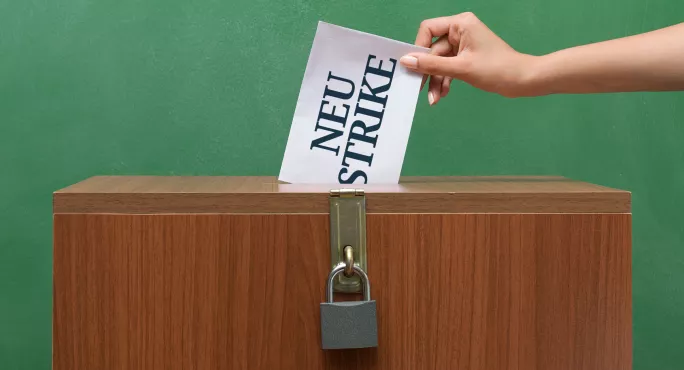The biggest education union has set the date for a preliminary ballot of its members in September over strike action, amid concerns over teacher pay and the rising cost of living.
The NEU teaching union has said it will hold the online preliminary ballot on 24 September, to gauge interest in possible strike action, with a formal ballot to follow in November.
The news follows the announcement of teacher pay awards at 5 per cent for experienced teachers, far below the fully-funded inflation-plus pay rise the union requested in June.
Speaking after the pay award announcement last month, joint general secretary of the NEU Kevin Courtney said the 5 per cent increase would “still mean yet another huge cut to the real value of teacher pay against inflation”.
“This isn’t a 5 per cent pay rise, it is a nearly 7 per cent pay cut.”
While other unions, including the Association of School and College Leaders and the NAHT school leaders’ union, have announced the intention for consultation of members over possible industrial action, no formal date has yet been set.
In June, the NASUWT teaching union said it would ballot members in England, Wales and Scotland for industrial action if a 12 per cent pay rise was not offered.
In the same month, the NEU warned the education secretary (then Nadhim Zahawi) that it would ballot members over strike action in the autumn if the government failed to commit to the requested rise.
And while the pay award of 5 per cent was higher than the 3 per cent the Department for Education recommended to the School Teachers’ Review Body (STRB) in March, it was still described as “wholly inadequate” by leaders, as well as “a double whammy that lets down the teaching profession and the pupils in our schools” due to the rise not being fully funded.
Writing in Tes at the time, education secretary James Cleverly said the increase in the award proposed by the STRB had been accepted as the economic picture had since “changed beyond recognition” over the last few months.
However, the increase not only failed to go far enough for teacher unions but also raised concerns that, as it was not fully funded, it would stretch school budgets even further.
Leora Cruddas, chief executive of the Confederation of School Trusts, said while it was important that teachers and leaders were “paid properly”, it had to be done in a way that was manageable for budgets.
“However, this pay settlement is not affordable within existing resources, especially in the context of unprecedented energy costs and other inflationary pressures for schools. It is essential that the government commits to a funded pay settlement,” she added.
“Without funding to meet this pay settlement, many schools and trusts will not be able to set a balanced budget.”




